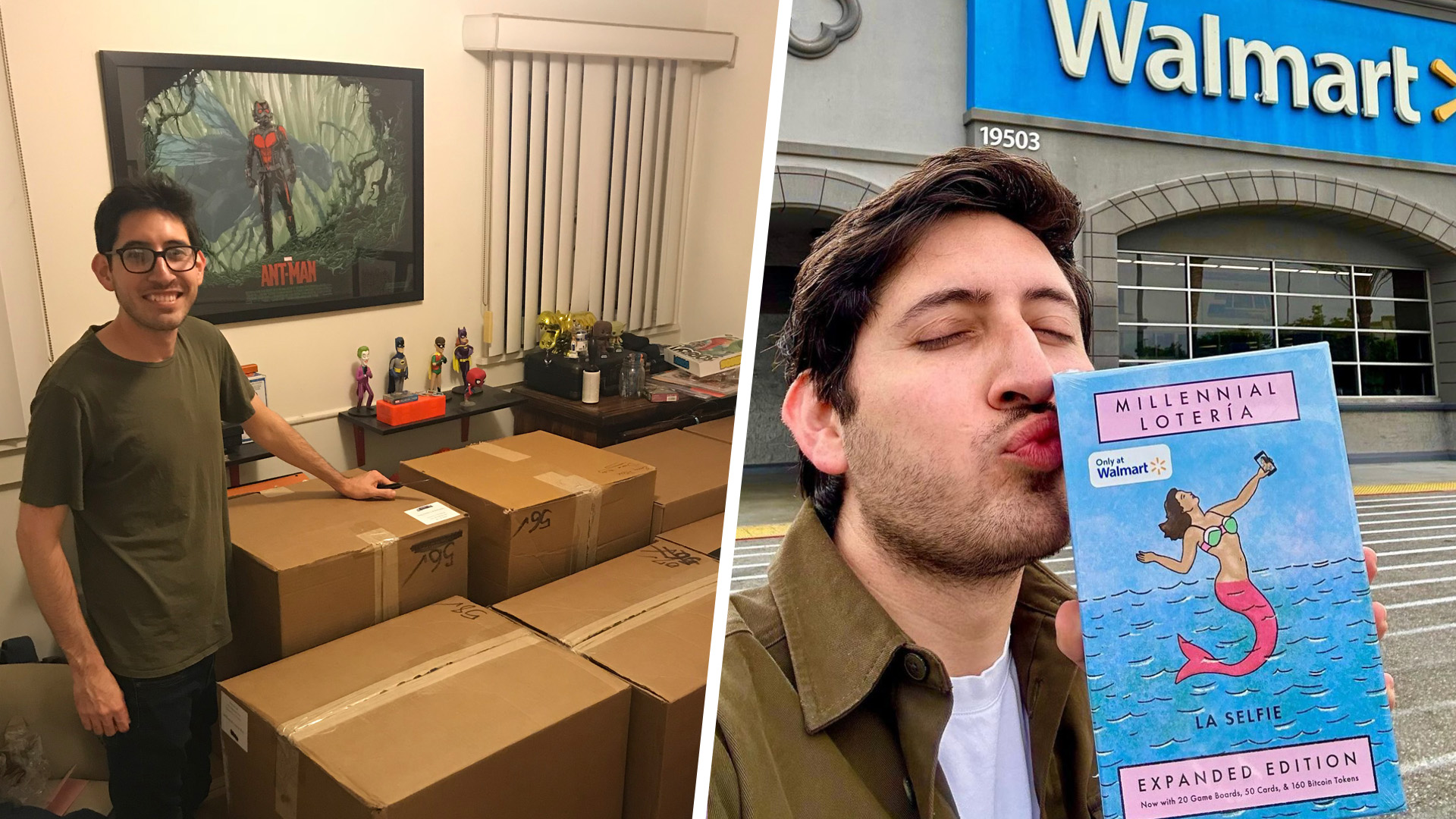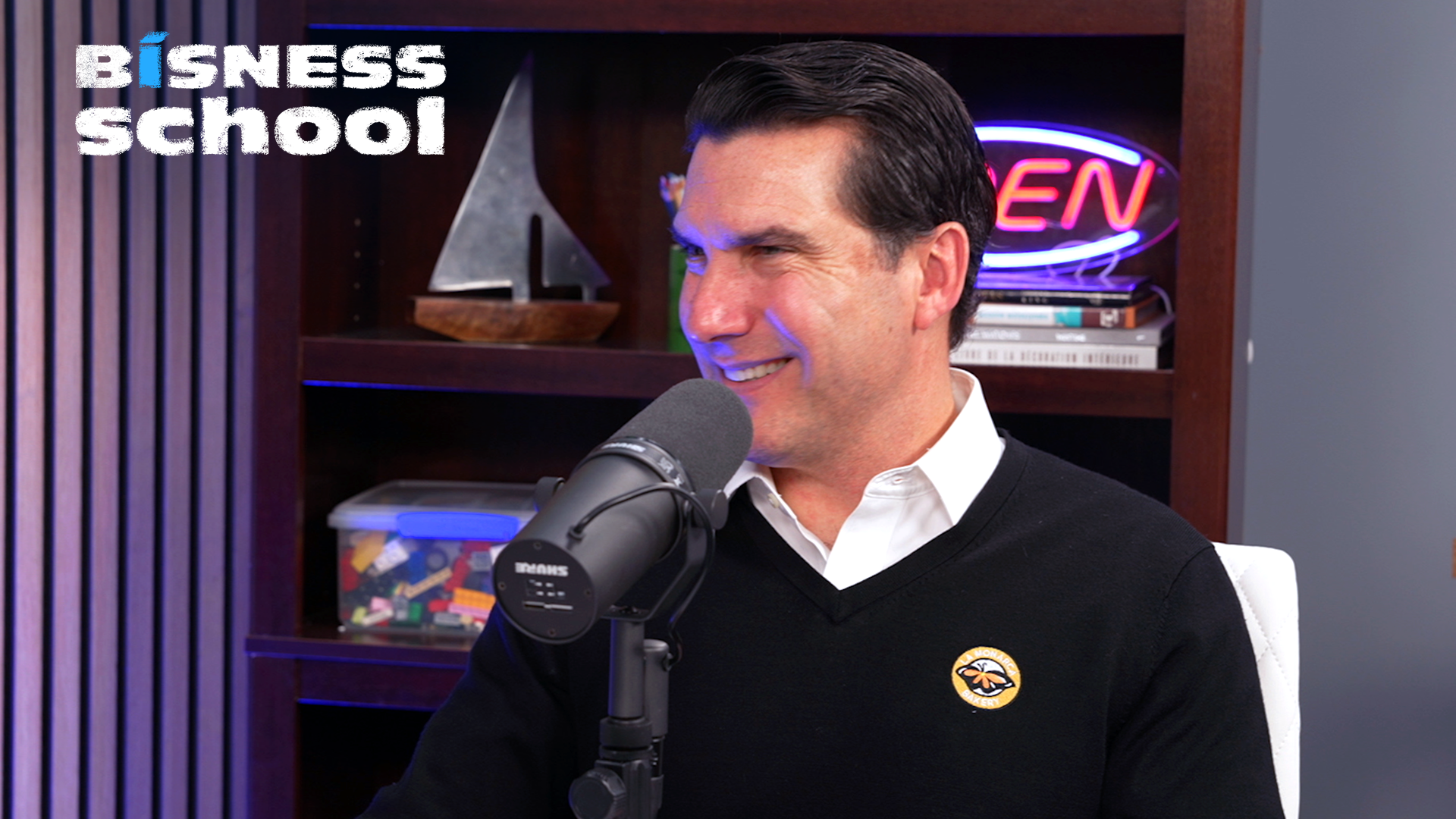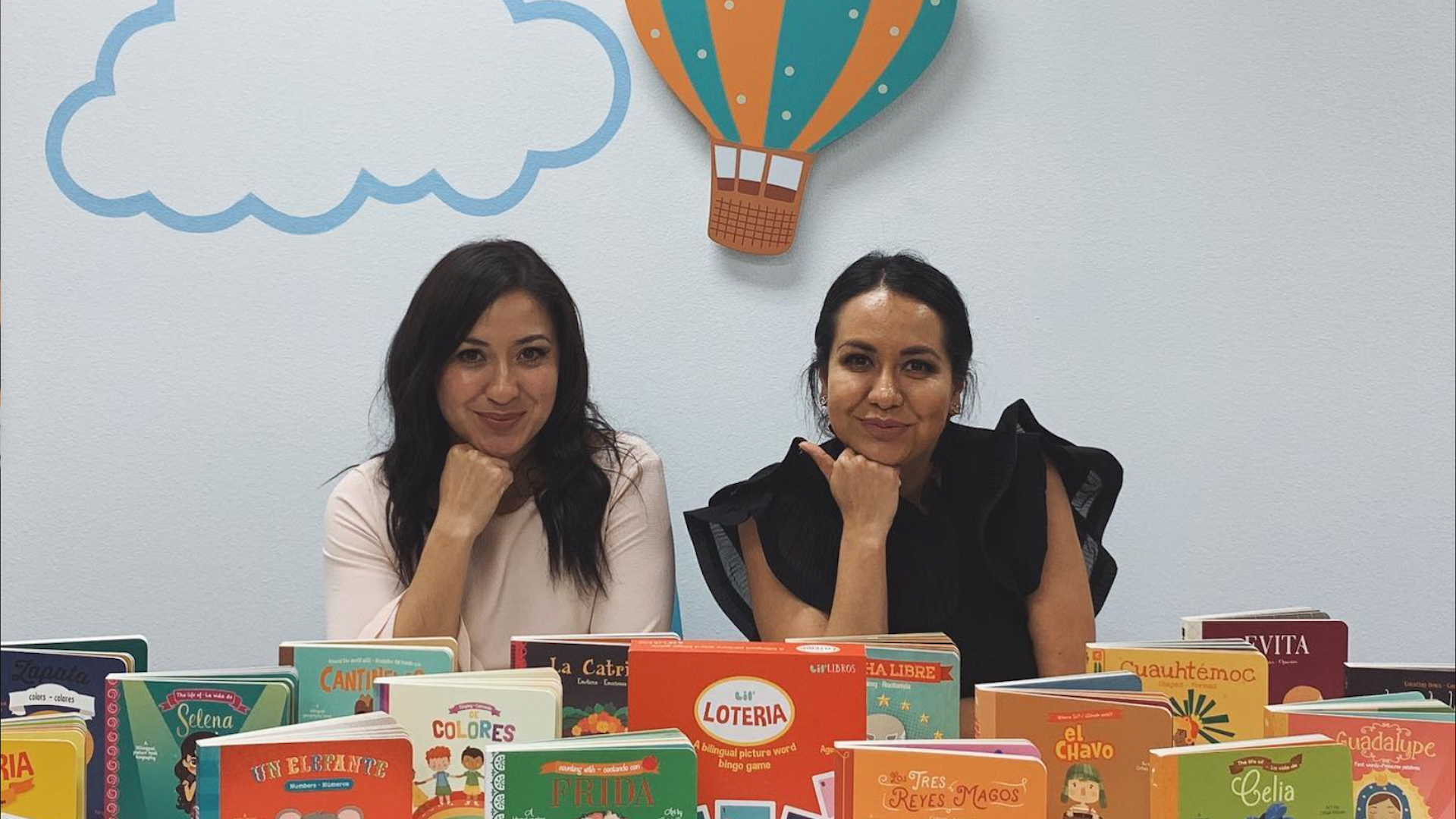Ideas are cheap. Execution is expensive.
And sometimes it takes putting people in uncomfortable positions to really get the mind going. That is what happened to San Diego-born Sandra Velasquez.
Velasquez is the founder of Nopalera, a luxury skincare company sold in department stores like Credo Beauty, Nordstrom, Free People and over 400 boutiques across the country.
Get top local stories in Connecticut delivered to you every morning. Sign up for NBC Connecticut's News Headlines newsletter.
But before she founded her million-dollar company, Velasquez spent years balancing day jobs with her music career.
How it all started
"I live in New York, which is—you have to have five jobs to survive in New York," Velasquez said.
A stable job allowed her to make ends meet, while her Mexican-folk music band called Pistolera let her pursue her passion for music while also helping her pay the bills.
"I used Pistolera as a platform to tell our stories, to celebrate our culture," Velasquez said. "There were times where the music was paying the bills. There were times when the day job was paying the bills. So it was good to have both."
Pistolera was so successful at one point that it was even featured in an NPR Tiny Desk concert.
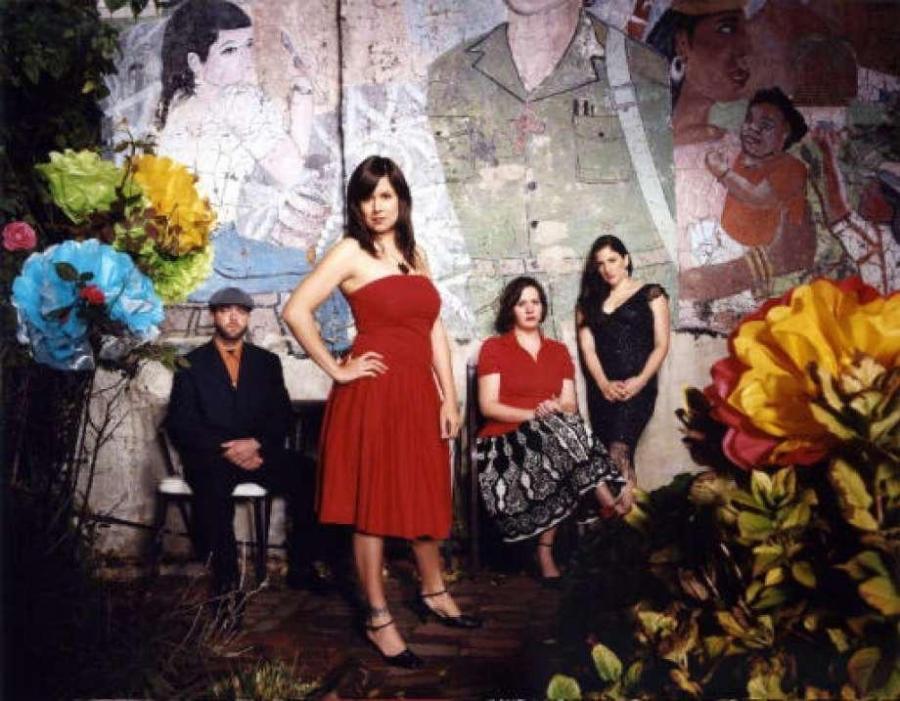
But after 14 years of music, working day jobs at Columbia University, and a consumer product goods startup, Velasquez's life took a sharp turn. In 2019, the company she was working at imploded, leaving her without a job.
"I found myself unemployed. That was a really tough moment for me because I had never been unemployed in my life," Velasquez said.
With crippling student loans from her master's degree, credit card debt, and now a 13-year-old daughter to take care of, Velasquez had to act quickly to find her path again.
"That really was a real low point for me in my life also, because I think it's worth noting that at that time I'm in my 40s, so I'm feeling very bad about my life and 'how did I get here?'" she said. "I should have more to show for everything I've done and I didn't."
Despite panicking about her situation, Velasquez decided to remain positive and visit her parents in San Diego to reflect and spend some quality time outside of New York with her daughter.
"I didn't want my daughter to know that I was panicking. And so we learned how to make lotion bars and I was learning how to make soap," she said.
The light at the end of the tunnel
One day as Velasquez and her daughter were trying a new soap recipe made with aloe vera, she noticed no one close to her sold the plant.
"I didn't have any aloe vera. I was like, wow, nobody's that's close enough [has it]? Let me just substitute it," Velasquez said.
Velasquez then went to her parent's yard where she spotted a nopal, Spanish for type of cactus.
"That was kind of the light bulb moment," she said.
Velasquez then grabbed the cactus' leaves and used them to produce her soaps.
"I literally was like, here's this plant I've known my whole life. I'm going to name the brand after this culturally symbolic plant that is also sustainable and nourishing and versatile."
And Nopalera was born.
Why would someone who is unemployed with $110,000 in debt, $30,000 of it in credit cards, start a business?
"I know it seems counterintuitive," she said. "But the thing is, if you are comfortable in your life, you are not compelled to make a change. And that's really what that moment was like. Here I am. I can either continue to do what I've been doing, which got me here, or I can think outside of the box, and I can actually think bigger. And this might be the opportunity to go and build something. If I had not lost my job now, I would have never started Nopalera."
But how do you start a beauty business without any product development experience? Velasquez first enrolled herself in school at Formula Botanica in the U.K. to learn how to formulate and create skincare and haircare products.
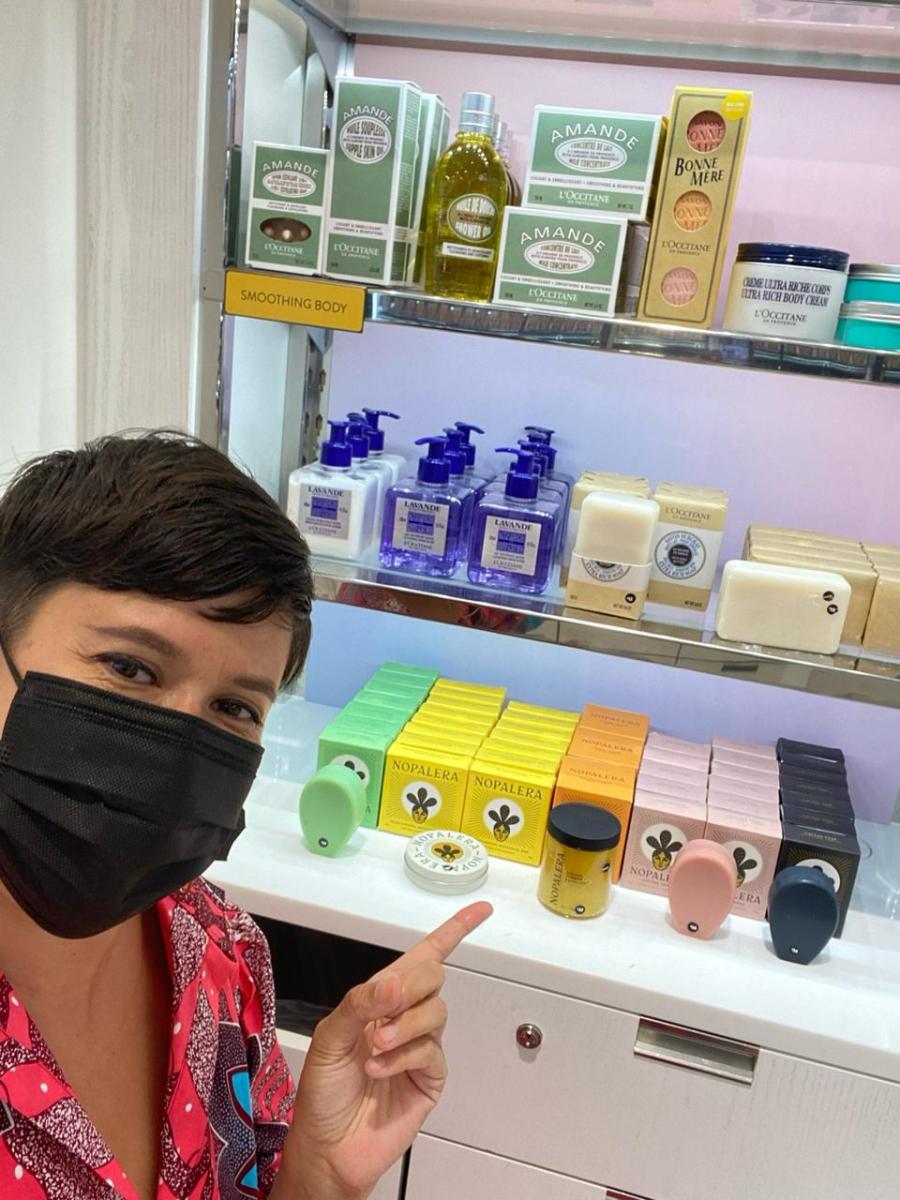
The second thing she did was contact a designer friend to help with the branding.
"I said, listen, I'm going to start a premium Latina beauty brand and I want you to be the person that does the branding. The only thing is 'I don't have any money, so can we do a payment plan?' And luckily she said yes," she said.
With all her studies, production costs, branding, and packaging, Velasquez ended up with $25,000 in debt. But she was not scared and pushed with one simple mission: to disrupt the predominately European-controlled cosmetics industry.
I didn't start the company because I like soap. The mission was to build a premium Latina brand that would disrupt the Eurocentric beauty space which has been dominated by Western European brands.
Sandra Velasquez
"All of us have been conditioned to believe if it's French, it's more worthy of a higher price tag, it's more expensive, it's a higher quality. And if it's Mexican, it should be cheap," she said.
"And so that was what I was fighting against. And that's why we exist."
From the kitchen to a mature business
Velasquez first began making the Nopalera soaps in her kitchen but quickly outgrew it and moved to a studio.
"It's New York, so... it was really a basement apartment that I found that used to be like a tax office, and that is that is where I had to move into to kind of scale."
Velasquez also invested in advertising, showing ads for her products online to people who lived in Texas, California, and Illinois, particularly Chicago.
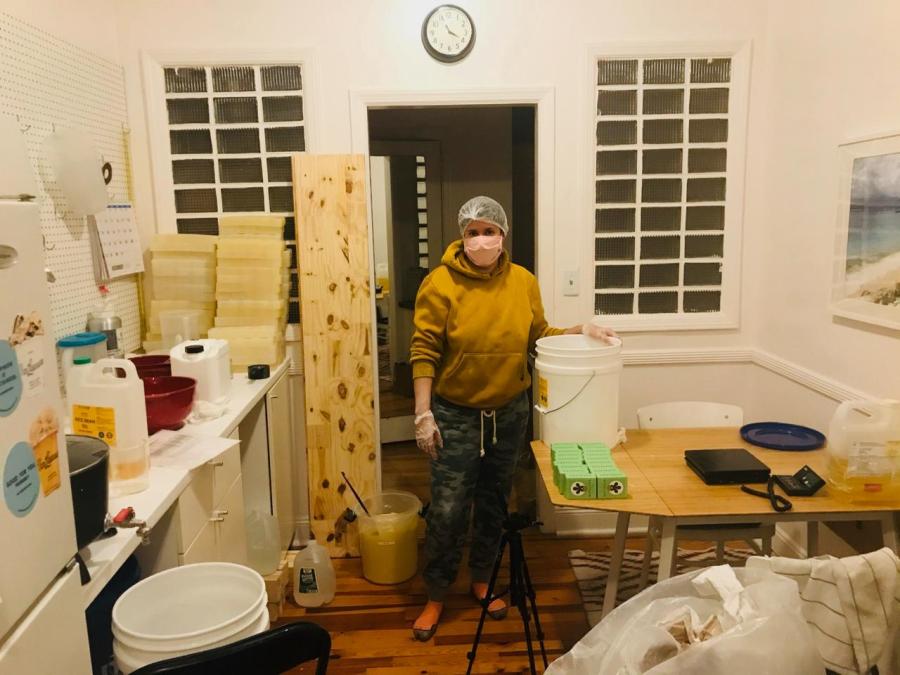
A short time later, Velazquez officially launched Nopalera in November 2020 and orders poured into her website.
"It was like a magnet," Velasquez said.
Her business then grew to the point that she hired an assistant and two employees to help her make the soap and process big orders for boutiques and wholesalers.
In front of the sharks
After the initial success of Nopalera, Velasquez applied to appear on the famous venture capital reality show "Shark Tank," where, after a couple of months of back and forth with the show, she was selected to appear.
"You're not allowed to bring your phone. There's no clock. So I have no idea what time I went in, what time I came out," she said. "And then all of a sudden it's like, go time."
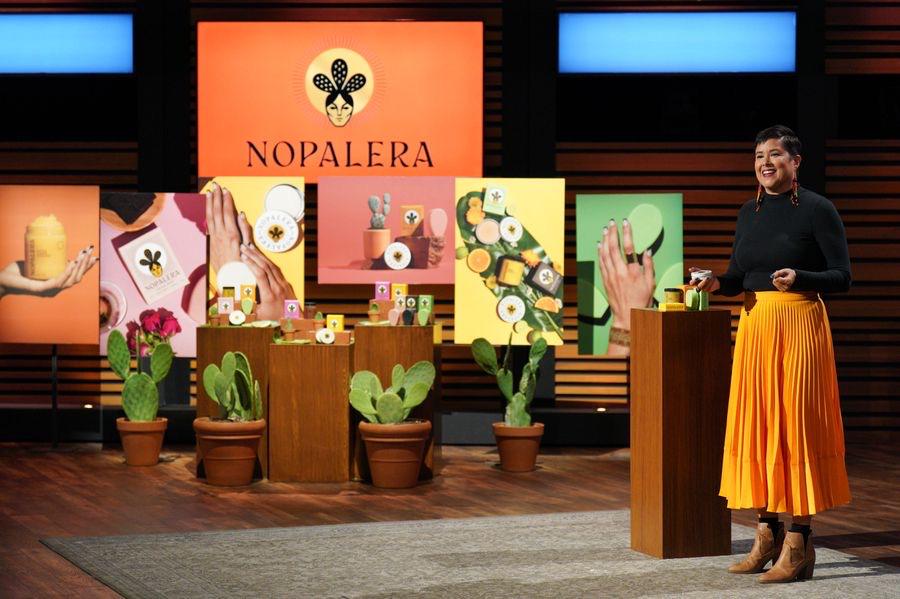
She then stood face to face with the likes of Daymond John, Mark Cuban, Kevin O'Leary and Lory Greiner.
"One thing that nobody warned me about is that it's a dead quiet soundstage. What we see on TV, it's edited, there's music, but in real life you have everyone has to bring that energy and bring that drama because you're just in a quiet room."
Velasquez eventually turned down the Sharks' offers.
"The offer was $300,000 for 30% of the company. That was what they were offering me, and what ended up happening after the episode is we ended up making $300,000 in sales anyway without having to give up the 30% equity."
Her show was filmed in July 2022 but didn't air until January 2023.
Despite the lack of a deal, the exposure from the show netted Velasquez 6,000 orders in two weeks.
From niche to viral
Nopalera's big break to the masses occurred shortly after launching when someone questioned the $14 price tag for a Nopalera soap on Instagram.
Velasquez decided to fire back, commenting "Made with Mexican hands does not equal cheap." And the response went viral.
Made with Mexican hands does not equal cheap.
Sandra Velasquez
At the end of 2020, months after launching, Nopalera closed the year with $19,000 in sales. In 2021, it topped $500,000.
In 2021, Velasquez was approached by a luxury goods seller, who landed her a spot inside Nordstrom and by the end of that year, she expanded her operations to a warehouse and contracted her manufacturing to a factory.

"Those are big milestones for me because it got the got stuff out of my house, but I was still doing too much," she said.
Never forget about yourself
Like many other entrepreneurs across the country, starting a business can be very draining financially, and energetically but also mentally.
"Taking care of your mental health as an entrepreneur is actually one of the most important things when you are starting because everything is on your shoulders," Velasquez said. "If you as a founder burn out, the whole company goes with you."
Despite balancing both managing a growing cosmetics company and taking care of her daughter, Velasquez always sought to sleep 8 hours a day and surround herself with people who supported her and inspired her to succeed.
"Sleeping and eating, honestly, it's so basic because a lot of entrepreneurs lose sleep and sleep deprivation is honestly a form of torture."
Velazquez was interviewed for Bísness School, a series that tells the inspiring stories of Latino founders. Subscribe to Bísness School wherever you get your podcasts to get future episodes automatically. Remember, Business school is expensive. Bísness School is free.

